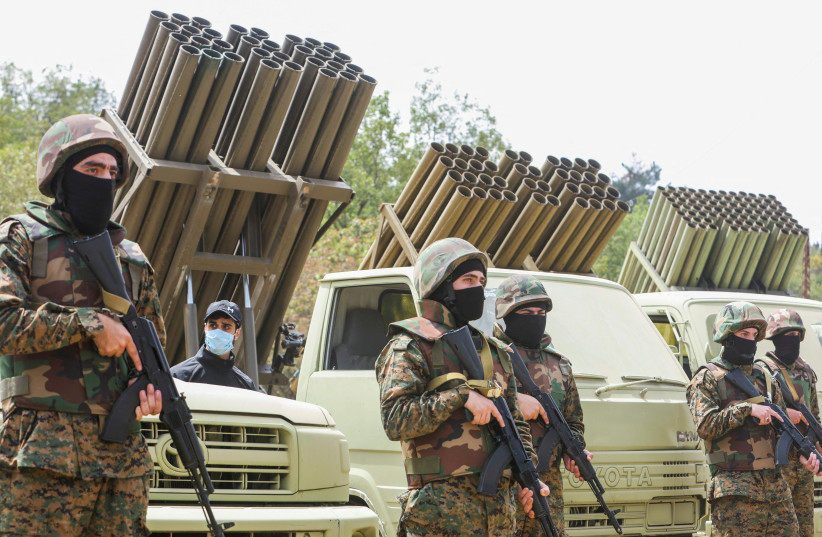The UN Security Council’s decision on August 31 to extend UNIFIL’s mandate in Lebanon was portrayed as a significant political and diplomatic achievement for Israel. This perception stems from the Security Council’s inclusion of a provision in the agreement that grants UN peacekeeping forces in Lebanon the autonomy to conduct patrols throughout all of southern Lebanon, rather than confining their activities to the border region with Israel.
Essentially, UNIFIL forces will now have the authority to conduct surprise patrols across the entirety of southern Lebanon, a departure from their previous mandate.
However, it is crucial to temper the enthusiasm from the Israeli perspective. Firstly, the decision contains a general reference to UNIFIL’s coordination with the Lebanese army, even though it grants them the ability to patrol independently. This creates a weak pretext for the Lebanese army and Hezbollah to obstruct these patrols. Secondly, and of greater significance, Israel should not place excessive trust in peacekeeping forces or expect them to shoulder the burden in southern Lebanon.
Historical instances have repeatedly demonstrated that when faced with critical situations, UN peacekeeping forces often falter. This was seen, for instance, during the onset of the Arab Spring in Syria when most UNIFIL forces withdrew from the region. Additionally, UNIFIL has been operating in southern Lebanon for over a decade, during which time Hezbollah has grown into a formidable terrorist army with approximately 200,000 rockets and seemingly dozens of precision missiles in their possession.
The endorsement of UNIFIL’s mandate by the UN Security Council occurs amid ongoing tensions in the northern region between Israel and Hezbollah. Since the start of 2023, Hezbollah has engaged in several ambiguous actions and unattributed provocations against Israel.

These provocations include triggering an improvised explosive device at the Megiddo junction; orchestrating the firing of 34 rockets into Western Galilee by operatives affiliated with a Hamas offshoot in Lebanon; launching an anti-tank missile towards Israeli territory; establishing tents with armed Hezbollah operatives on Israeli sovereign land; and making repeated attempts to damage the border fence and infiltrate into Israeli territory.
How can Israel fight Hezbollah's increased boldness?
Hezbollah’s increased boldness can be attributed to a continuous erosion of Israeli deterrence, as a result of a number of variables.
First, the maritime border agreement signed between Israel and Lebanon was made with clear threats and pressure exerted by Hezbollah, who threatened to take military action against Israel if it began producing gas from its Karish reservoir without signing the agreement with Lebanon. At the same time, Hezbollah sent three UAVs towards a gas rig in Israel on July 2, 2022.
In addition, Israel did not respond to most of the provocations and actions by Hezbollah in the past year, including the establishment of the military tent located in sovereign territory on Israeli soil (as of this writing it has not been evacuated); and the terror attack in Megiddo. This reality has significantly weakened the deterrence against Hezbollah and increased its appetite for further aggression.
Israel’s current stance is not geared towards escalating tensions in the northern region and entering into a conflict with Hezbollah in Lebanon. The nation is currently facing more pressing political and security challenges, including internal divisions within Israeli society, including the IDF; efforts to advance normalization with Saudi Arabia through a tripartite agreement involving the United States; the ongoing development and expansion of the Abraham Accords; and the intricate task of addressing the Iranian threat – including the nuclear deal and potential undisclosed interim agreements between the United States and Iran.
Nevertheless, it remains imperative for Israel to bolster its deterrent capabilities against Hezbollah. Consequently, a middle ground must be sought, and the Campaign Between the Wars (CBW) strategy should be activated in Lebanon, mirroring Israel’s actions in Syria and various other locations in the Middle East. This operation must be carried out discreetly and with ambiguity, to minimize potential reactions from Hezbollah.
By initially subjecting Hezbollah to targeted strikes on “lesser” targets that they can manage, Israel can progressively escalate its operations to target higher-value objectives and so forth. Israel’s primary objective should be to disrupt Hezbollah’s military power buildup, including its missile precision program while striving to prevent a retaliatory response from the terrorist organization.
This strategy inherently carries the risk of escalation, which must be factored into the equation. Consequently, Israel must prepare in advance for the possibility of a brief, multi-day conflict with Hezbollah, during which it can exploit the opportunity to inflict substantial damage on the organization’s missile and rocket stockpiles, along with its military infrastructure.
The writer has a PhD in political studies. He is a military strategy and national security expert, and a researcher at the Jerusalem Institute for Strategy and Security (JISS) and at the Israel Defense and Security Forum (Habithonistim).
